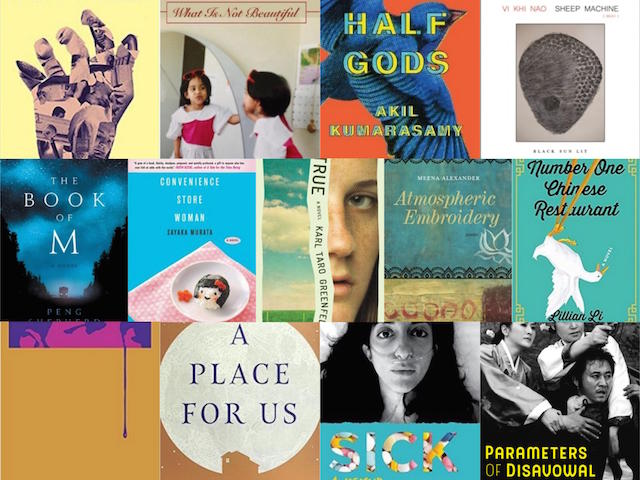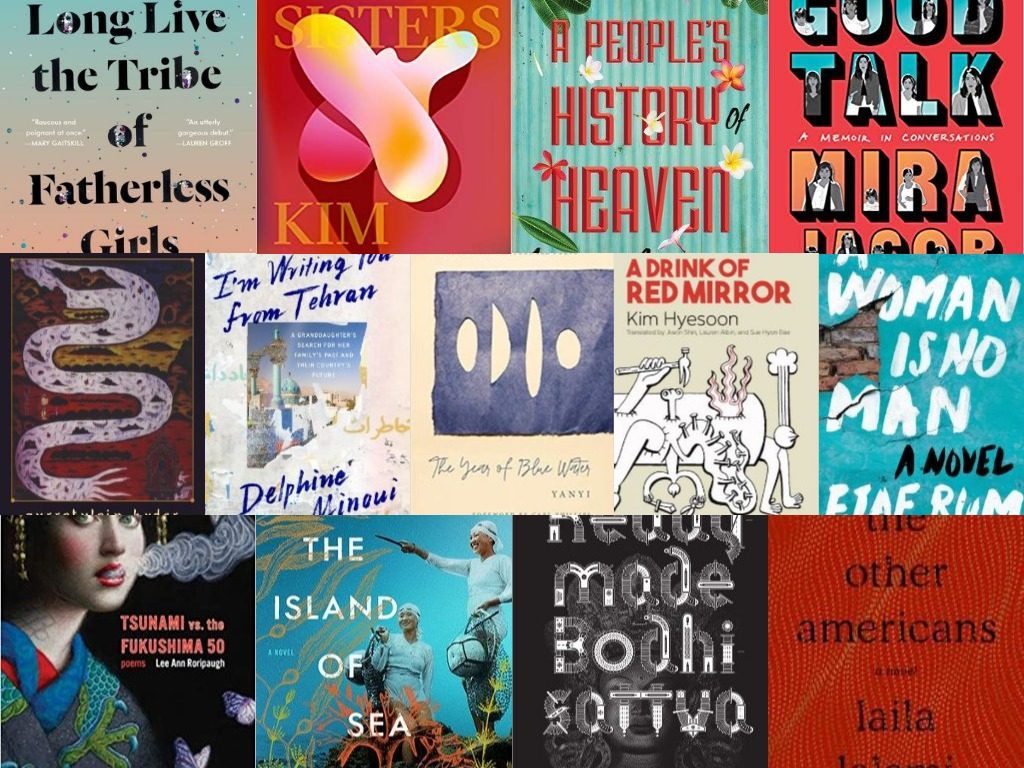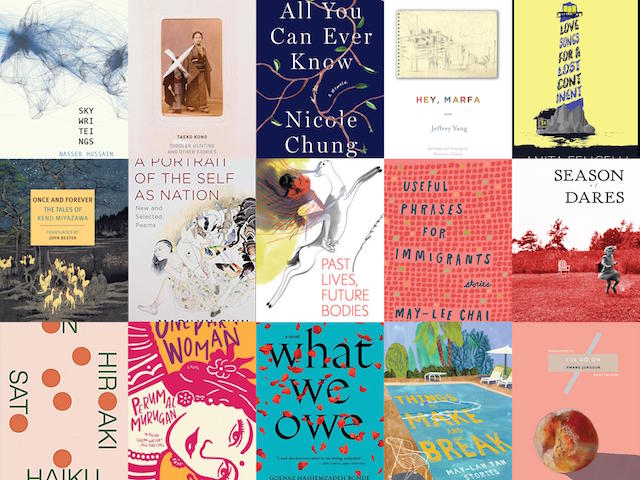April’s releases by Asian diasporic writers include new works from Samrat Upadhyay, Durga Chew-Bose, and Mai Der Vang.
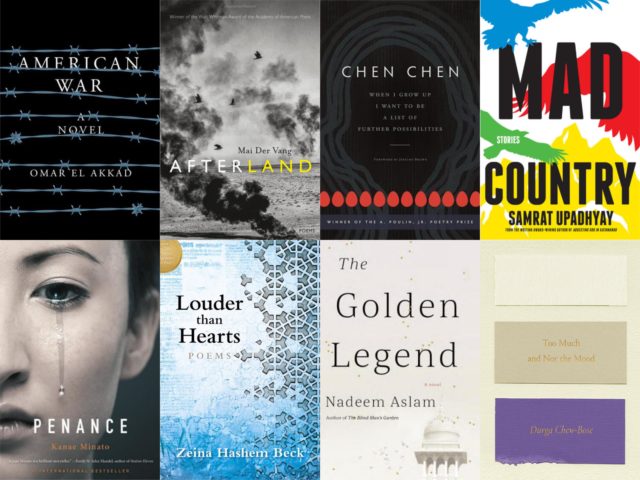
April 11, 2017
Each month we’re gathering new and notable releases by Asian diasporic writers for our new series, Bookmarks. April brings us epic dystopian fiction by Omar El Akkad, diasporic Hmong poetry from Mai Der Vang, and Zeina Hashem Beck’s restorative, “God-soaked” poetics.
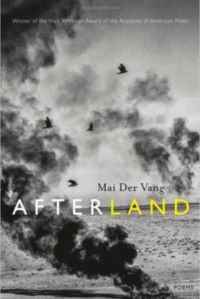
Afterland by Mai Der Vang
The winner of last years Walt Whitman Award, Mai Der Vang’s Afterland is a “searing portrait of the resilience of Hmong refugees and immigrants.” Encompassing the Laotian Civil War, the mass exodus of refugees that came to America, and the story of her own family’s immigrant journey, Vang’s debut collection is, as Carolyn Forché writes, “atavistic, contemporary, and profoundly spiritual.” (Graywolf, April 4)
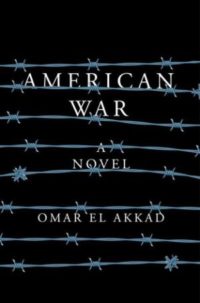
American War by Omar El Akkad
An award-winning journalist who has covered Arab Spring and Ferguson, Omar El Akkad has written a timely novel about an imagined American future where the country has been devastated by global warming and torn apart by a second Civil War. Sarat Chestnut was still a child when the war broke out, and after the death of her father her family is forced into a refugee camp, propelling her into a mysterious and deadly future in a dystopian country that feels entirely possible. (Knopf, April 4)
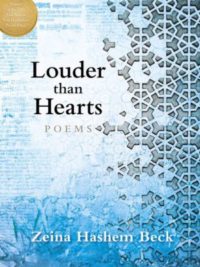
Louder than Hearts by Zeina Hashem Beck
“Her poems feel like whole worlds,” says Naomi Shihab Nye of poet Zeina Hashem Beck, whose second collection, Louder than Hearts, comes out this month. “Readers will feel restored to so many homes, revived, amazed.” Mixing English and Arabic, Beck’s poetry pushes at the limits of language, love, and loss, composing a collection that is “God-soaked and edgy.” (Bauhan Publishing, April 4)
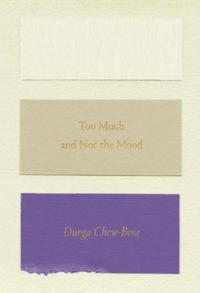
Too Much and Not the Mood by Durga Chew-Bose
“[I]s there anything better, more truthful and sublime than what cannot be communicated?” asks writer Durga Chew-Bose in her debut essay collection. Named for a line from Virginia Woolf’s diaries, Too Much and Not the Mood is an exquisitely written collection that interweaves her cultural criticism with self exploration, displaying her expert ability to raise “the subtleties of existence to a sphere that is both otherworldly and painfully recognizable.” (FSG Originals, April 11)
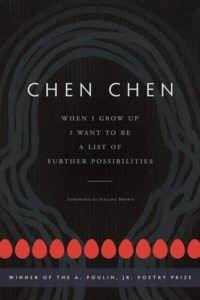
When I Grow Up I Want to be a List of Further Possibilities by Chen Chen
“[S]ome were poems & some / were prayers, cries, ejaculate, & now all I remember / is I love you I love you,” writes Chen Chen of reading Ginsberg’s archival letters, although, to me, it reads as self-description of his own inventive and frankly intimate poetry. When I Grow Up I Want to be a List of Further Possibilities includes poems about his relationship with his mother, growing up Asian American in Massachusetts suburbs, odes to his boyfriend Jeffrey and “little songs about gravity.” It’s an exciting, must-read debut from a poet that that Sherman Alexie called “funny, absurd, bitter, surreal, always surprising, and deeply in love with this flawed world.” (BOA Editions, April 11)

Penance by Kanae Minato
Japanese crime writer Kanae Minatoe, the author of the international bestseller Confessions, is back with a new psychological thriller about the unsolved murder of a teenage girl, whose death haunts her friends into adulthood, and drives her mother to plot an elaborate revenge on the surviving women. (Mulholland Books, April 11)
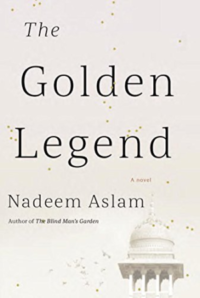
The Golden Legend by Nadeem Aslam
The celebrated writer of The Blind Man’s Garden returns with a new novel set in contemporary Pakistan. When Nargis’s husband is murdered by a stray bullet, she gets caught up in the religious and nationalist tensions between Muslims and Christians. The rising violence threatens her own life, and the secrecy of her past that she kept from her husband for years. An urgent, vibrantly written “story of the fragility of the world and of ourselves.” (Knopf, April 18)
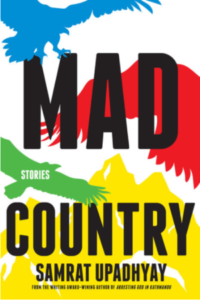
Mad Country by Samrat Upadhyay
Nepali writer Samrat Upadhyay’s new story collection traverses the globe – including stories set in the back alleys of Kathmandu and amidst the uprising in Ferguson, Missouri. A young man dreams of leaving Nepal for a new life and love in Ghana, a woman accidentally ends up trapped a political prisoner while searching for her son, a white woman moves to Nepal from Ohio only to find herself stuck on “Freak Street.” Mad Country is Upadhyay’s seventh book, and is filled with the same probing, vividly written fiction readers have come to expect from him. (Soho Press, April 18)

